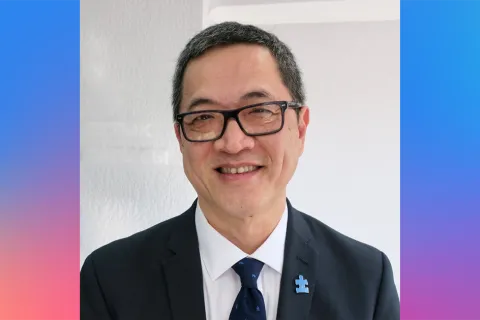Meet Dr. Brittany Hand
Dr. Brittany Hand
Assistant Professor of Health and Rehabilitation Sciences, The Ohio State University
I feel it is important in my line of work to study real-world issues facing the growing population of autistic adults living today
As a former pediatric occupational therapist, Dr. Brittany Hand’s work with children with a range of developmental conditions, including autism, solidified her interest in working to help serve the needs of people with autism.
Much of her research background has been analyzing large data sets to understand health trends in the larger population. But more recently, she has focused on developing solutions to improve health care for autistic teens and adults today.
“Each year in the United States, 50,000 autistic individuals turn 18 years old,” Hand said. “I feel it is important in my line of work to study real-world issues facing the growing population of autistic adults living today and, where possible, design solutions to those issues to promote better access to and quality of health care services.”
Hand’s work is tackling primary care services for autistic teens and adults as a way to improve access to quality health care in the community.
“Adult health care providers report feeling that they don't have the skills and resources needed to effectively deliver care for these individuals,” Hand said.
Hand’s current work is evaluating the effectiveness of delivering primary care in a specialized facility for teens and adults with autism, such as at the Center for Autism Services and Transition (CAST) in central Ohio.
If this type of care leads to better health and patient satisfaction, Hand hopes it can serve as a model for other communities around Ohio and throughout the U.S. Hand’s project received funding from Autism Speaks in 2019 through a targeted Transition to Adulthood grant.
“Ultimately, we hope to spread awareness of effective strategies and educate adult primary care providers about ways these strategies can be incorporated into their practice, which will ultimately improve quality of care and health-related quality of life for autistic adults,” Hand said.









